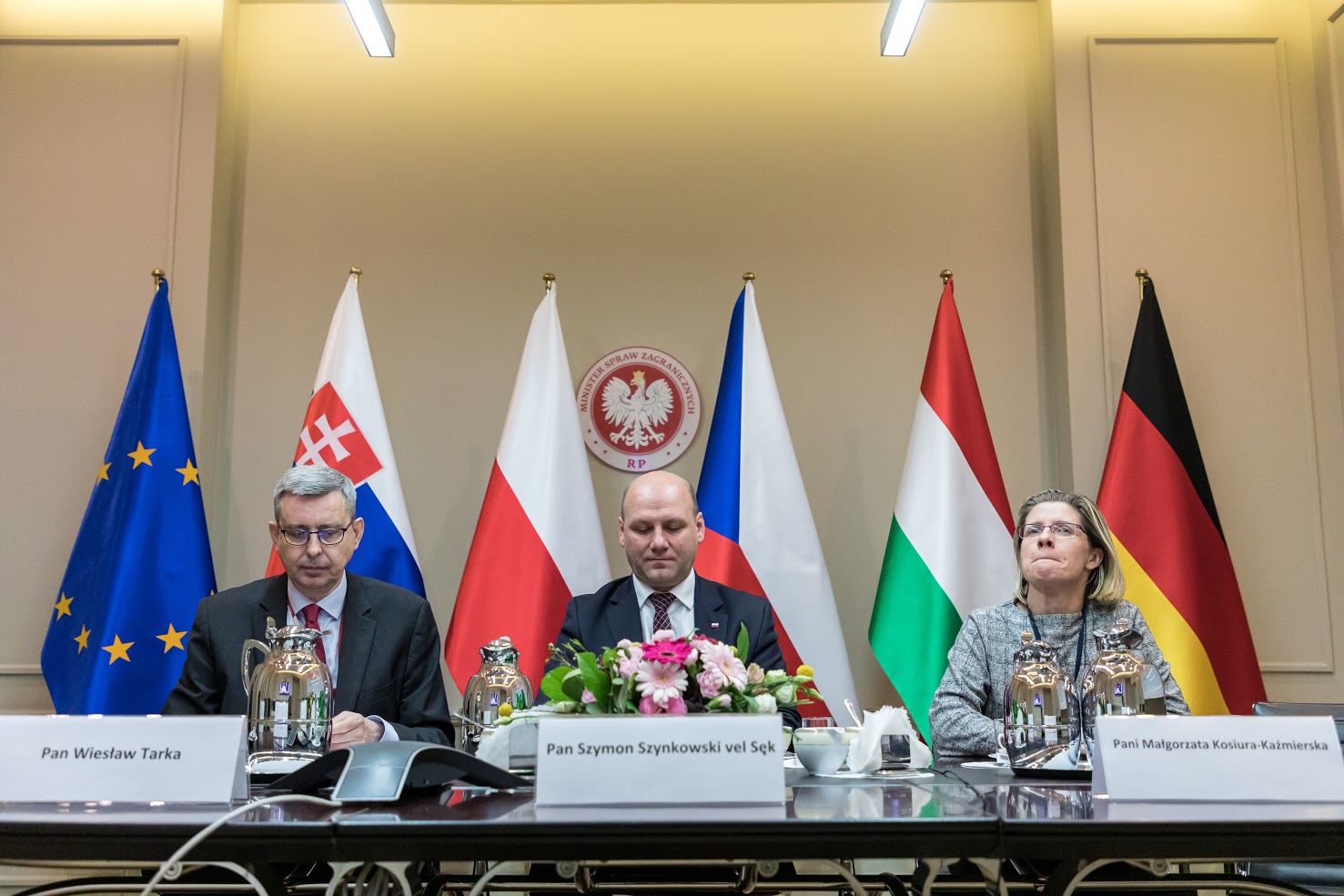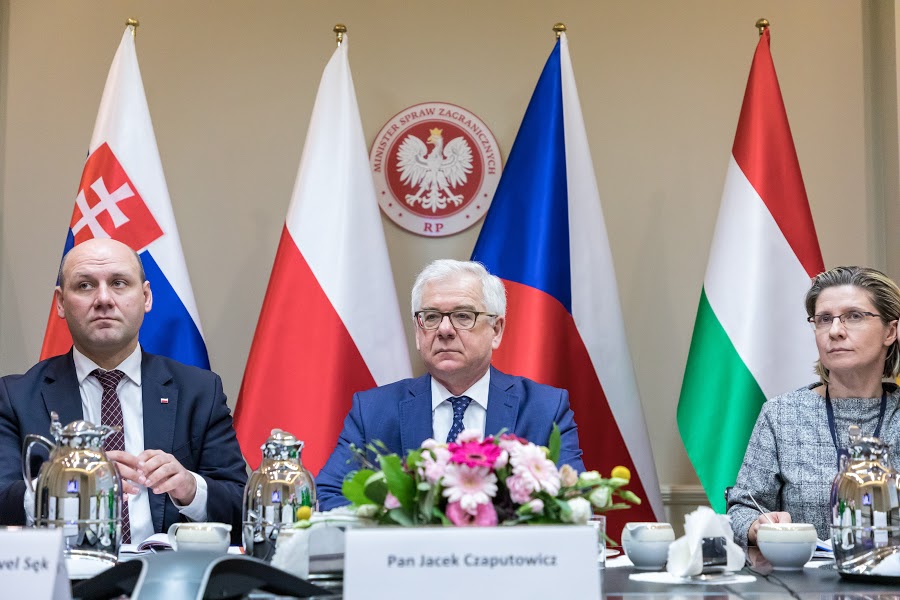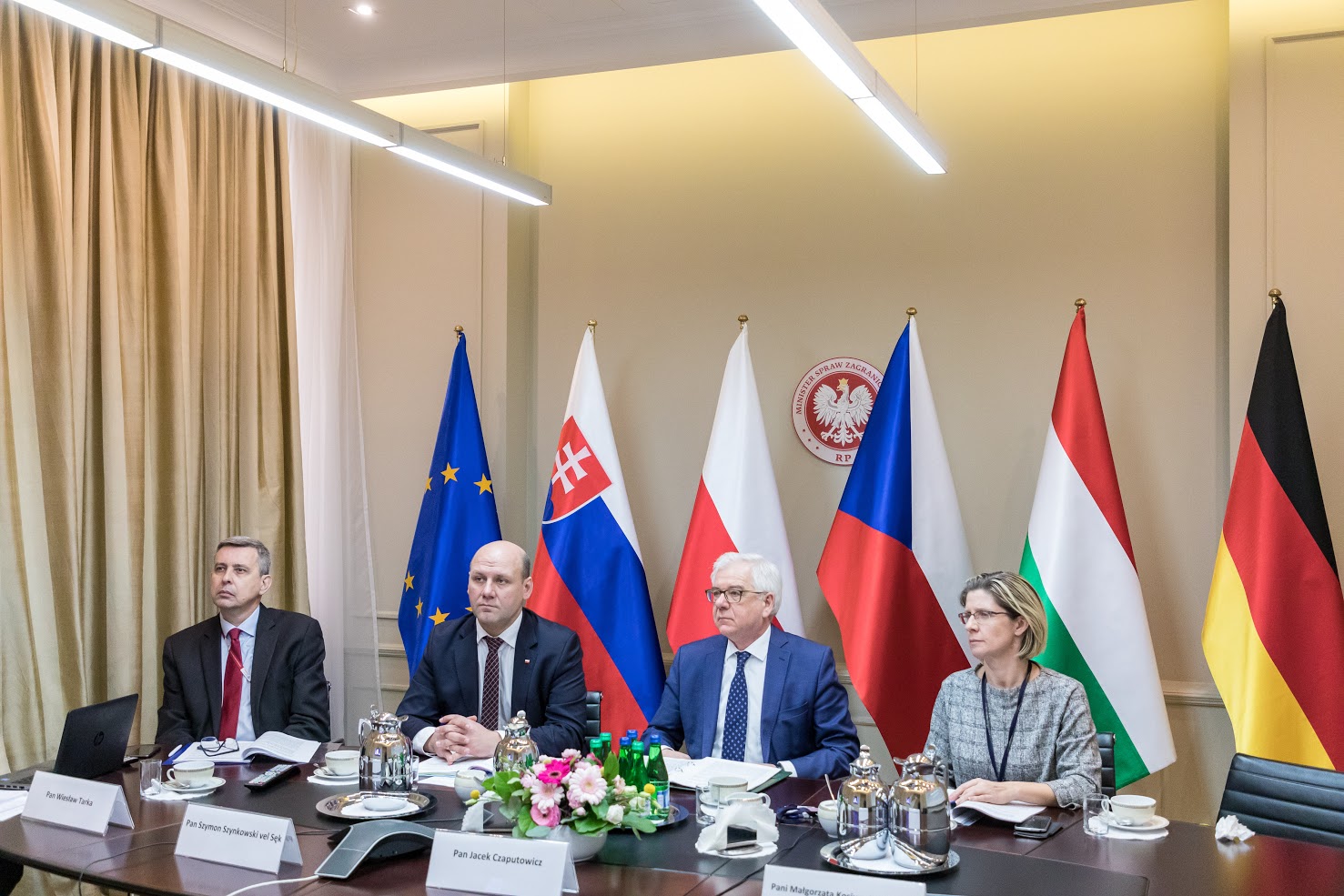Consultations of foreign ministers of Visegrad Group and Germany
13.03.2020
Visegrad Group foreign ministers and German top diplomat Heiko Maas met today to discuss the priorities of German presidency of the European Union Council, EU enlargement, progress of the Eastern Partnership, EU-Russia and EU-China relations and developments in the Middle East.

The ministers’ meeting was held by video conference which was organized by the Czech presidency of the V4. Minister Jacek Czaputowicz and Deputy Minister Szymon Szynkowski vel Sęk were among the participants.
Deputy Minister Szynkowski vel Sęk stressed the need for the EU to keep a uniform position towards Russia, which is a prerequisite for pursuing an effective policy in relations with Russia’s authorities. In his view, Moscow’s actions, such as the annexation of Crimea, the situation in Donbass, growing threats posed by Russia’s disinformation, and the latest cyber-attack against Georgia, have undermined a rules-based security order.
During the discussion, the Polish MFA representatives also recalled that the Eastern Partnership should remain a key political instrument in relations between the EU and the six EP countries. The minister said: “It is critical to give our partners very clear signs of support and increase our visibility in Eastern Partnership actions. The participating countries should receive a clear message about this attitude during the Eastern Partnership upcoming summit in July 2020.”
The meeting was also an opportunity to reiterate Poland’s support for the process of EU enlargement. “Poland remains a steadfast supporter of the European enlargement policy. It is one of the most effective EU policies, bringing positive results and having geostrategic importance for the whole EU,” underscored Minister Czaputowicz. He went on to say that the March meeting should lead to a positive decision of the European Council both as regards North Macedonia and Albania. The Polish top diplomat also presented the results of a joint last week visit to North Macedonia and Albania of Polish, Lithuanian and Latvian foreign ministers and Estonian deputy foreign minister for European affairs. Minister Czaputowicz argued that the visit was a sign of unequivocal support for European aspirations of the Western Balkans and for their prospects of full EU membership. The Polish MFA chief stressed that the EU enlargement policy and support for the Western Balkans countries in their path towards European integration are Poland’s priorities for its one year long presidency of the Visegrad Group, starting on 1 July 2020.
Following the talks held on Friday, the foreign ministers of the Visegrad Group and Germany issued a joint statement (available below).
MFA Press Office
Photo Sebastian Indra / MSZ
Materials
Joint Statement after the consultations of the Ministers of Foreign Affairs of V4 and GermanyMFA_V4+DE_declaration_.pdf 0.18MB



